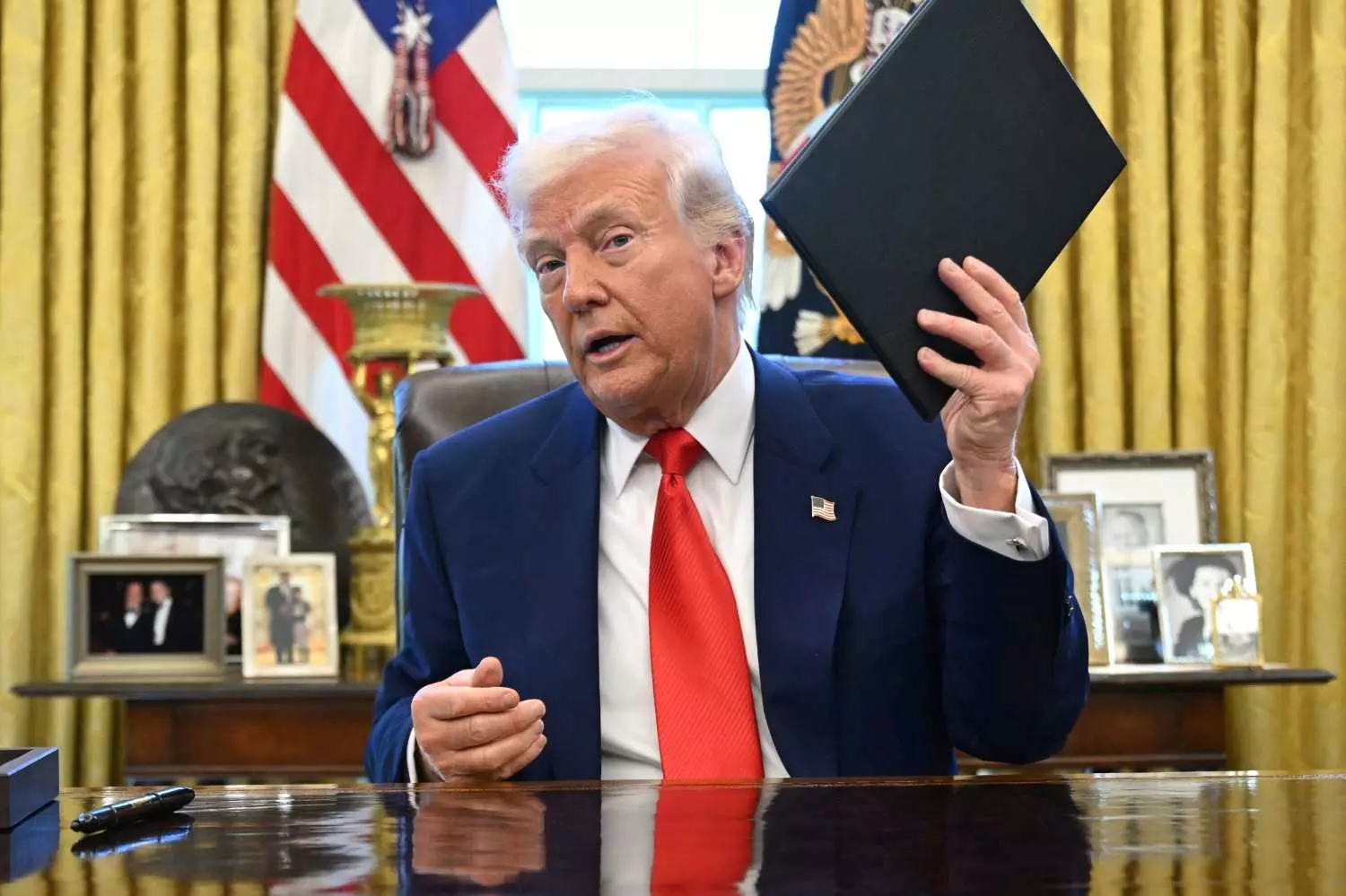
Adverse verdict would risk India-Pak ceasefire, says Trump team while defending tariffs
An adverse ruling that constrains presidential power in this case could lead India and Pakistan to question the validity of President Trump's offer, said Lutnick

The US administration, while defending the use of powers to impose sweeping tariffs, told a New York court that an adverse ruling would jeopardise the truce brokered by President Donald Trump between nuclear powers India and Pakistan. The submission, made last week, failed to convince the Court of International Trade, which blocked Trump's tariffs from going into effect.
Also read | Federal court blocks Trump from imposing sweeping tariffs under emergency powers law
The Trump administration told the court that India and Pakistan reached a “tenuous ceasefire” only after President Donald Trump "interceded and offered both nations trading access with the US to avert a full-scale war.” However, Indian government sources have maintained that the two countries reached an understanding without any third-party involvement.
Lutnick defends tariffs
Commerce Secretary Howard Lutnick made the remarks in a submission to the Court of International Trade last week, arguing that Trump used his emergency powers under the International Emergency Economic Powers Act (IEEPA) to impose tariffs aimed at protecting US national security and economy. Lutnick said that the maintenance of tariffs is crucial to the president’s ability to conduct real-world diplomacy.
“For example, India and Pakistan - two nuclear powers engaged in combat operations just 13 days ago - reached a tenuous ceasefire on May 10, 2025. This ceasefire was only achieved after President Trump interceded and offered both nations trading access with the United States to avert a full-scale war,” Lutnick claimed in the submission.
“An adverse ruling that constrains presidential power in this case could lead India and Pakistan to question the validity of President Trump's offer, threatening the security of an entire region, and the lives of millions,” he said.
Trump’s repeated claims
Trump has repeatedly claimed that he “helped settle” the tensions between India and Pakistan and that he told the nuclear-armed South Asian neighbours that America would do a “lot of trade” with them if they stopped the conflict.
About two weeks after the horrific April 22 terror attack in Pahalgam in Jammu and Kashmir, in which 26 civilians were killed, India launched Operation Sindoor targeting terror infrastructure in Pakistan and Pakistan-occupied Kashmir.
India and Pakistan reached an understanding on May 10 to end the conflict after four days of intense cross-border drone and missile strikes. Indian government sources in New Delhi have maintained that no third party was involved.
‘Will risk trade deals’
Lutnick said that IEEPA gives the US president a pivotal tool to express his foreign policy promptly and decisively to address national emergencies that manifest through economic and commercial channels.
Also read | US didn’t broker India-Pak ceasefire, it happened only through DGMOs: Jaishankar
“An invalidation of President Trump's ability to use IEEPA would dismantle a cornerstone of President Trump's national security architecture, irreparably harm the government's ability to respond to evolving foreign threats and severely disrupt the Department of Commerce’s coordination of foreign policy-related economic actions on behalf of the President," said Lutnick.
"It would jeopardise vital trade agreements, collapse ongoing negotiations, allow for Chinese aggression during a period of strategic competition, leave the American people exposed to predatory economic practices by foreign actors and threaten national security,” he added.
Reciprocal tariffs
On April 2, Trump announced sweeping reciprocal tariffs on several countries, including India and China. However, on April 9, he announced a 90-day suspension of these tariffs until July 9 this year, except for those on China and Hong Kong, as about 75 countries approached America for trade deals.
On Wednesday, a three-judge panel of the Court of International Trade struck down Trump's global tariffs as "contrary to law", according to ABC News.
(With agency inputs)

